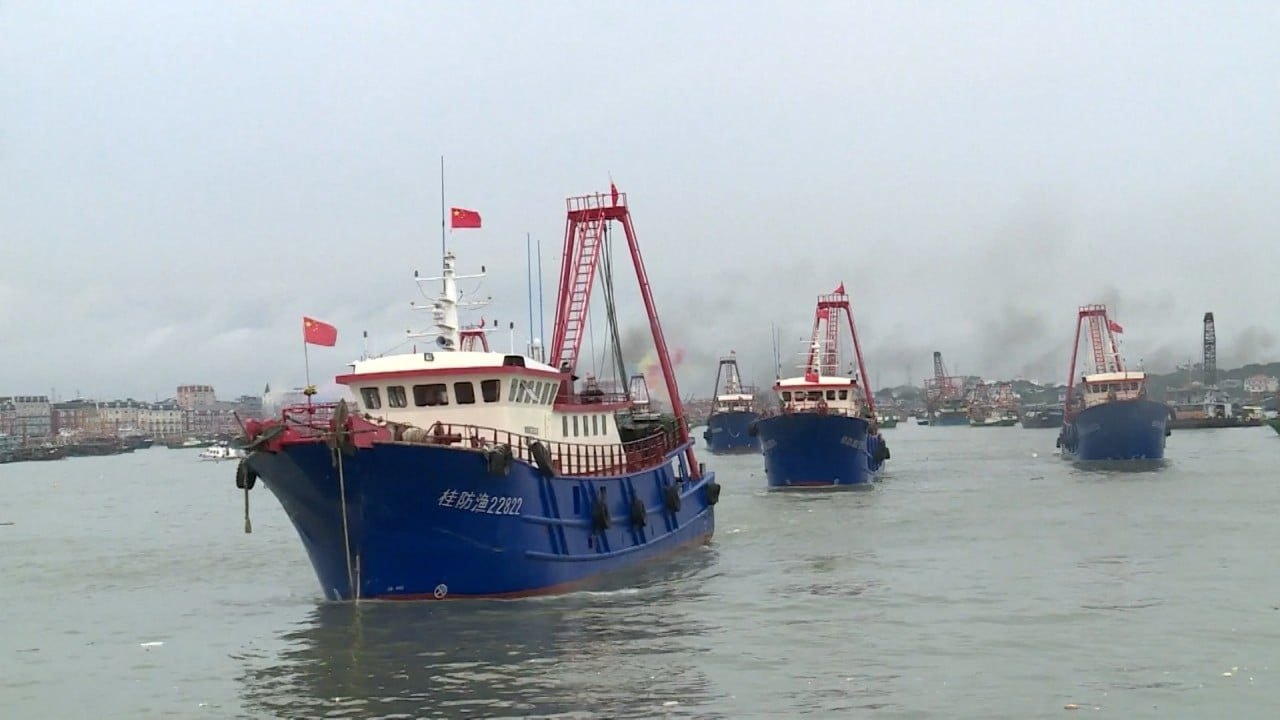
China warns US not to provoke confrontation as it pushes to boost ties with Southeast Asia
- Washington recently unveiled a US$150 million package for the region, including an initiative to promote a ‘free and open’ Indo-Pacific
- Beijing said it welcomed positive engagement with the region and deepen cooperation
China called on the United States to meet the needs of Asean countries by promoting peace and cooperation rather than engaging in bloc confrontations following Washington’s announcement it would expand ties with the region.
Chinese Foreign Ministry spokesman Zhao Lijian said China welcomes any initiative that promotes long-term sustainable development and common prosperity in the region.
He added that China and Asean do not engage in “zero-sum games” and do not promote bloc confrontation.
“What I want to say is that China and the US are both Asia-Pacific countries and can have a common circle of friends. The key is to listen to the voices of Asia-Pacific countries to maintain peace, and deepen cooperation,” Zhao said, urging the US to play a positive and constructive role.
Talks started as far back as 2017, have stalled over the past two years, largely due to the coronavirus pandemic. Zhao said China was confident an agreement could be reached and said the code would provide a more solid basis for long-term stability.
China and at least four Asean members – Vietnam, the Philippines, Brunei and Malaysia – have overlapping sovereignty claims in the South China Sea.
The US package includes US$60 million to “promote a free and open Indo-Pacific” and will see the United States Coast Guard assign more resources to the region for training and security cooperation.
According to the new regional maritime initiatives, the US Coast Guard will deploy assets and assign additional personnel to the Indo-Pacific for maritime training and capacity-building, including a coast guard attaché at the US mission to Asean.
Singapore PM to attend US-Asean summit in Washington weeks after meeting Biden
It also includes new initiatives to help Asean countries counter illegal, unreported and unregulated fishing, and the US Coast Guard will deploy a cutter to Southeast Asia and Oceania for security cooperation, according to the announcement.
The maritime cooperation is part of US efforts to advance its position in the wider geopolitical competition with China in the Indo-Pacific region, which ranges from clean energy infrastructure and education partnerships, to global health.
China and its Southeast Asia neighbours have accused each other of carrying out illegal fishing in the waters they claim in the South China Sea.
Last May, the Philippines rejected an annual summer fishing ban imposed by China in the South China Sea and encouraged its boats to keep fishing in the country’s territorial waters.
Xu said the US would help the Asian countries to better protect fishing rights in their exclusive economic zones.
“Illegal fishing is not only a dispute between China and neighboring countries, but also within the Asean countries themselves, so the US move will not only provoke the tension between China and neighbouring countries, but all countries in the South China Sea,” Xu said.
Drew Thompson, a visiting senior research fellow at the Lee Kuan Yew School of Public Policy at the National University of Singapore, said the security balance in the region would not change drastically because the US$60 million package focused on protecting the economic interests and fishing rights of Asean countries.
“The initiative’s primarily to build their capacity to better regulate unreported and illegal fishing, not necessarily flood the region with US Coast Guard ships. It’s to make Southeast Asian coastguards more effective so they can protect their economic interests.”
Seize the ‘Asian moment’, China tells Cambodia ahead of US-Asean summit
It would also be in Beijing’s interests for exclusive economic zones and fishing industries to be better regulated, he said.
“The US Coast Guard will not target Chinese ships exclusively, but target illegal and unlicensed fishing vessels in every sovereign states’ EEZ as part of a law enforcement effort.”
But if Beijing reacts negatively towards the increased presence of US Coast Guards in the region, Thompson said China’s response would be “disingenuous”.
He said: “If China is dissatisfied with other countries other than themselves in the region … then I think it’s perhaps a moment for Southeast Asian states to reflect on the nature of their neighbour to the north.”
Additional reporting by Jack Lau


